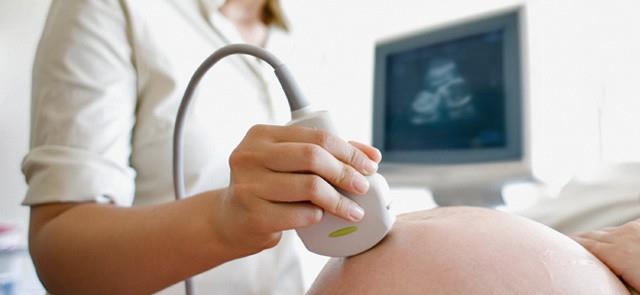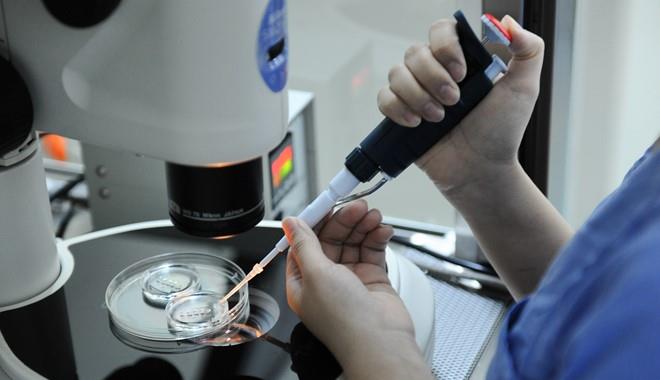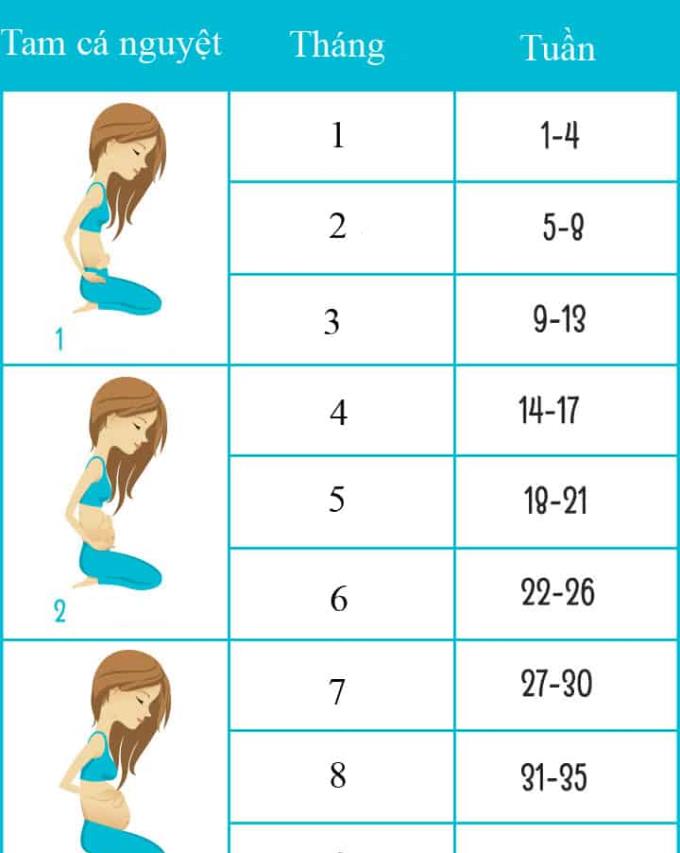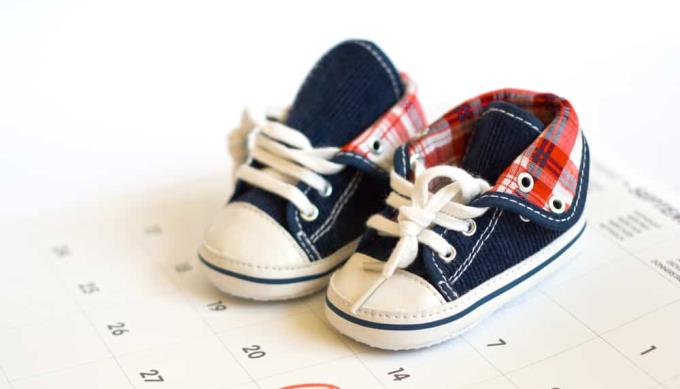Many women are interested in calculating the exact gestational age to predict the expected due date. Paying attention to your last period is often the key to applying the gestational age and due date.
When you just found out you are pregnant, you will surely learn how to calculate the gestational age to know how many weeks old your baby is? When will you give birth? Do not be surprised if your baby's due date or gestational age change a little bit from your initial calculation. Do you want to know the most accurate way to calculate the gestational age? So please refer to the following article of aFamilyToday Health.
7 ways to calculate gestational age accurately and simply
Simple and accurate gestational age calculation that every pregnant mother can apply

1. How to calculate gestational age according to the menstrual cycle
The week of pregnancy is calculated based on your last period. The first week of pregnancy begins on the first day of the last menstrual cycle . The following weeks kept adding. This may sound strange, but it helps you know exactly when you need medical assistance.
There is currently no way to determine the exact time of ovulation and conception. Therefore, most people, including health professionals, will judge the day you conceive based on the first day of your last period's “red light” on display.
2. How to calculate gestational age according to date of sex and date of ovulation
This calculation applies to couples who do not have sex often, women who have regular menstrual cycles and remember the exact date of sex as well as determine the date of ovulation . The reason is that sperm can live in a female body for 5 days, but an egg can only live 1 day after ovulation. The sperm can only fertilize an egg during this time.
According to this calculation, the first day of gestational age will be counted starting on the day of sex with ovulation and adding 36 weeks (ie 266 days).
Tell mothers how to calculate gestational age that doctors often apply
The doctor will use a combination of all 4 methods to calculate, including: calculation of the last menstrual period, a physical examination, an ultrasound and measuring uterine height. Although the time of delivery cannot be determined exactly, you can also predict your due date in advance .
1. Periodic health examination
Your doctor can predict the week of your pregnancy by measuring the size of your uterus. Around week 12 of pregnancy, your uterus sits above the pelvis. By 18 weeks, the distance between the base of the uterus and the pubic bone will be the same as the number of weeks since the last menstrual period. About 20 weeks, the base of the womb will be near the navel. This helps the doctor determine the week of pregnancy. However, this is not a completely correct way to predict gestational age because this method can be affected by a number of factors such as: multiple pregnancy, obesity ...
2. Ultrasound - The exact gestational age calculation

An ultrasound can still help you determine the week of pregnancy even if you are not sure about the first day of your last period or if your period is irregular. Ultrasound helps determine gestational age based on measurements of the fetal sac and fetus.
An ultrasound machine measures the baby's size from head to toe. This helps the doctor estimate the week of pregnancy based on baby's growth. If there is not much difference between the ultrasound and the final menstrual method, your doctor will use the menstrual method to determine the due date.
For example, if an ultrasound and final menstrual calculation shows you are pregnant in the same week, the menstrual calculator will be used to determine the due date. If there is a difference of one week or more, the expected date of delivery will be calculated according to the ultrasound result.
3. Measure the height of the uterus
To be able to calculate gestational age using this method, your doctor measures the distance from the pubic bone to the base of the uterus. Usually, after the first month, uterine height will increase on average 4cm per month. Thus, the gestational age will be determined by the formula: gestational age (months) = uterine height / 4 + 1 or gestational age (weeks) = uterine height + 4.
How to calculate gestational age in IVF or to calculate gestational age after in vitro fertilization

Calculate the gestational week and due date when artificial insemination will be more accurate than normal conception. This is because you know the exact date of embryo transplantation or ovulation.
The expected date of delivery at in vitro fertilization is calculated by adding up to 38 weeks (ie 266 days) from the time the egg was fertilized. Another calculation is to add 38 weeks but subtract the number of days the embryo was implanted. For example, if the embryo was implanted for three days, 3 days would be deducted and 4 days would be subtracted from 4 days.
Therefore, artificial insemination will help determine the pregnancy week and due date more accurately. In addition, you can conduct an ultrasound to predict the date of birth more accurately.
How to calculate gestational age according to pregnancy chart by week and month
If the above calculation is driving you crazy, you can use this simple spreadsheet:

“Trimester” means “3 months” because most pregnancies take place during the 9 months so each pregnancy is divided into three trimesters. This is just one effective way to describe changes in your body:
The first trimester takes place from the date of conception to a pregnancy of 13 weeks and 6 days. Along with the feeling of excitement and anticipation, pregnant mothers cannot help but feel tired due to morning sickness.
The second trimester takes place from 14 to 27 weeks of pregnancy and 6 days. During this trimester, pregnant mothers will feel stable and become more fresh. Morning sickness that took almost all of your energy in the early stages is gone and you will find it hard to hide your growing belly.
The third trimester happens when you are 28 weeks pregnant until your baby is born. You will need a lot of energy to help your baby thrive and cope with the fatigue that is returning.
What if you don't know the first day of your last period or your period is irregular?

Calculating your expected due date using your period is best if your period is regular, meaning that each cycle has 28 days. If you do not remember or your period is irregular, you should wait until the first pregnancy ultrasound to determine the gestational age by week and calculate the due date. The ideal time for an ultrasound is 10–13 weeks plus 6 days.
Estimating the due date is only accurate if you have a steady 28-day menstrual cycle. For women with different short menstrual cycles, calculating the due date using this method will not yield reliable results.
I am 5 weeks pregnant but the doctor says it's actually 4 weeks gestation. Why is that?
A 1 year old baby means that the baby is 12 months old and is about to turn 2, but the baby is still considered 1 year old. Likewise, when you pass the first week, you are still considered 1 week pregnant even after entering the 2nd week of pregnancy. For example:
During the first week of pregnancy, you will be called not pregnant.
During the second week of pregnancy, you will be considered to be 1 week pregnant.
During the third week of pregnancy, you will be considered a 2-week pregnancy.
The method of calculating gestational age by week continues like that.
Does fetal size really match the ultrasound results?

Every week of fetal development has some parameters about its size and weight. They are all averages.
The fetus is roughly the same size in the early days of pregnancy, but will then develop at different rates in the mid 3 months. This explains why some full term babies weigh less than 2.5kg and others weigh more than 3.5kg.
You should not be too concerned when the results of the ultrasound show that the fetus is not reaching the standard average size . Due to the development of pregnancy, the standard size of the fetus also fluctuates with the larger amplitude. Your doctor will let you know if you have any concerns about your baby's growth.
How to calculate the standard due date for pregnant mothers

The due date will be determined by adding 40 weeks (280 days) to the first day of your last period. This is done with the assumption that you have a regular, 28-day period. Ovulation occurs two weeks after the first day of the "red light" appears. This is the time when an egg can conceive. If your baby is on the due date, your baby is only 38 weeks old, not 40 weeks old.
For example, the date when your last period's “red light” appears is December 25–12–2017. Add 40 weeks, which means your due date is 30–9–2018.
The due date is only an estimate of when the baby will be born. Only 5% of babies are born on the due date. Most babies will be born between 37 and 42 weeks of pregnancy, usually about a week from the expected date of delivery.
The calculation of gestational age by week and month will give you the most basic view of time of pregnancy, due date. It's important to know that each person's pregnancy is different and this is just the most general calculation. Therefore, do not rely too much on its accuracy. If you have any questions about the week of pregnancy and the due date, ask your doctor during a regular check-up to learn more.


















